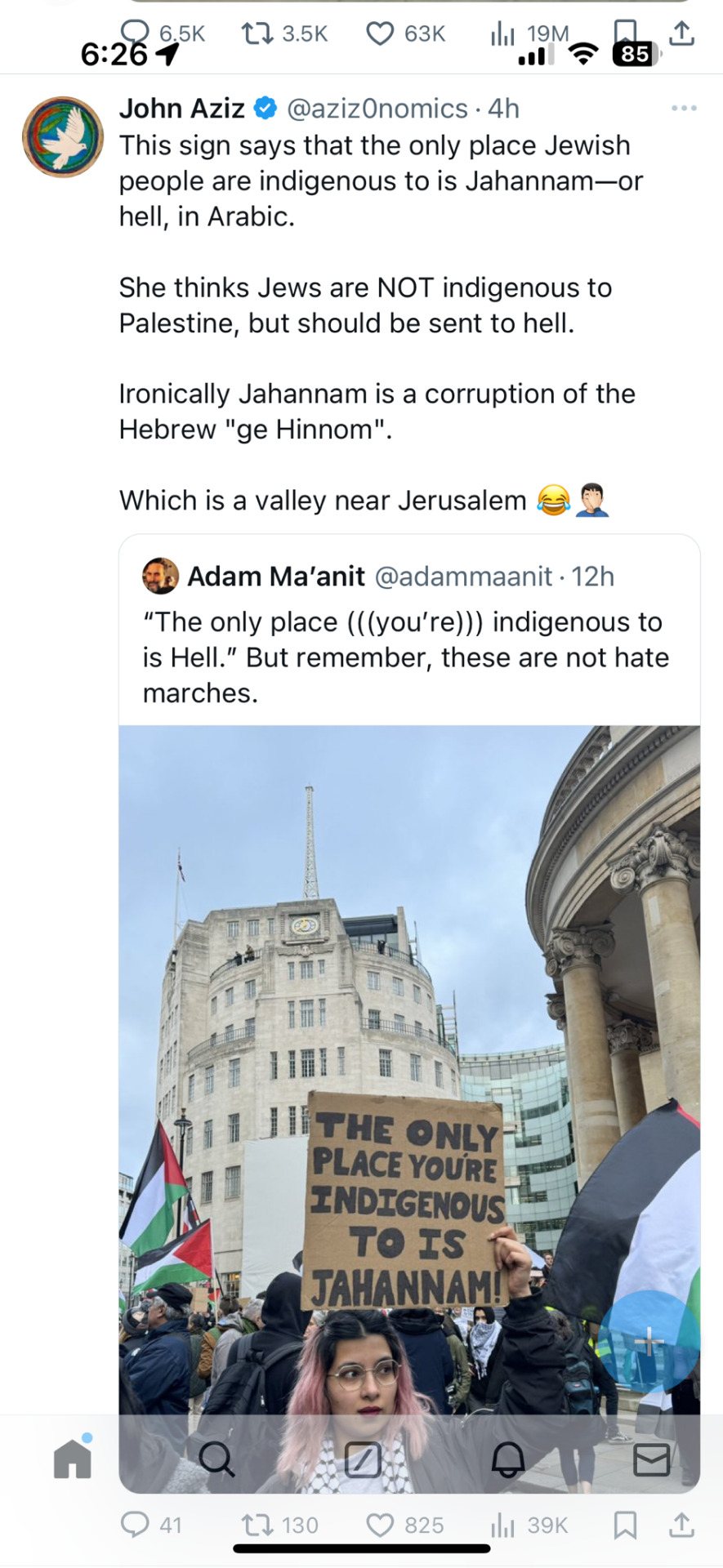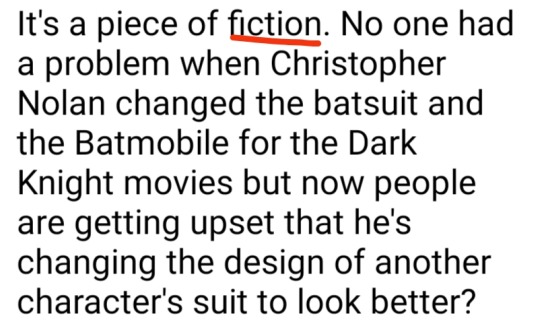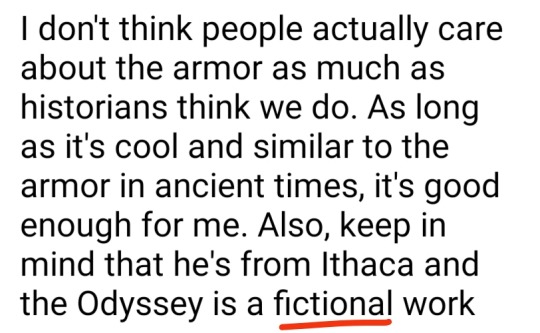#ERASED HISTORY
Explore tagged Tumblr posts
Text

The mystery of the Tartaria Empire: A forgotten superpower erased from history? 🏰 Maps and ancient records reveal an advanced civilization, but the truth behind its disappearance has been hidden for centuries. Was the Tartaria Empire a global superpower, or is it just a legend? Dive into the forgotten history and the conspiracy theories surrounding the lost empire.
See the video on our YT channel The Codex of Forbidden Knowledge
# #LostSuperpower #ErasedHistory #AncientCivilizations #HistoricalCoverup #Tartary #ConspiracyTheories #AncientTechnology #LostHistory
#Tartaria Empire#Tartaria#Erased History#ancient civilizations#cover up#conspiracies#conspiracy theories#Tartary#Ancient Technology#lost history
2 notes
·
View notes
Text
Of course the US government isn't advocating for Israel to give the Palestinians back their land. Because then they'd have to be accountable for all the stolen native land the country they govern sits upon.
#from the river to the sea palestine will be free#free palestine#gaza#palestine#west bank#native americans#tribal nations#erased history#stolen land#usa#us
5 notes
·
View notes
Text

#christian#methodist#History Repeats#history#education#learning#truth#activism#justice#schools#knowledge#critical thinking#historical truth#civil rights#social justice#progress#resist#equal rights#fight for truth#banned books#erased history#truth matters#teach the truth#defend education#education matters#history repeats#protect history#historical erasure#say no to ignorance#church activism
1 note
·
View note
Text
It took the Justice League 5 months to catch the two kids who were stalking Flash.
After Batman has figured out why a little girl were stalking and air kicking flash in the middle of attempting a time run while the other one, a little boy beat the problem in like it a rabid animal.
Superman need 2 hour to physically calm himself the first time he caught the girl once as carefully as he could, only for her heart to stop completely, become inverted, going through his hands with her body literally melting like some sort elderitch horror film hearing that scream if it weren't for the little boy flew by catching her at high speed and diving into a emerging green portal that disappeared.
Clark broke down right there and than, chokes with tears dripping heavy like a child in front of batman with his hands shakenly uncontrollable coated in blood and lararus pits goop. Batman and Diana comforted him as much as he could as he had lois and his adopted parents on sped dial.
Later Clark refused to let go as he kept hugging Jon for 5 hours straight with Conner petting his head and Lois comforting him after he went home. Ma kent making pies in the kitchen like there was annual pie competition.
Diana had tried to talk to them a couple times softly, only to end up fighting in the most impressive yet terrifying amazonian fight she has ever went through against two kids that made her mother talk of battle seem like childplay.
She was fully convinced on the theory they're demigods that Flash somehow erase their existence.
Surprising the one who has caught them long enough to actually convince them to come was J'onn.
Mainly due to the little boy rambling question with the pace of 60 mph with literally stars in his eyes wrapped, tightly wrapped to J'onn's arm like a snake and one little girl, stuffing her face with a bat burger on J'onn's left shoulder.
Apparently due to Flash's time running that he saved a wandering pilgrim man from falling off a cliff that would've led the discovery and making of their modern town. All their loves ones, friends and life were erased out of existence is what Elle, 3 and half now currently told them.
Danny, the sleepy 7 year old boy who still wrapped around J'onn's arm, is going through a crash after a obsession induce manic high because he is an Alien! A real life Alien!! There wasn't any in his timeline, but why did they get real living Alien in this one?! They're in space in a space station!!
Elle is very sorry for traumatizing the flying guy with her destabilizing a bit, she wasn't supposed to change into ghost form yet, but she did what she had to do to escape his grasped.
Frostbite and clockwork did fixed her up thankfully or else danny would've destroyed the world like a grape.
The Justice League concerned looks didn't help when she laughed a bit nervously about it.
Part 1 here <-
#dpxdc#dc x dp#danny phantom#dp x dc#dp x dc crossover#dc x dp prompt#dcxdp#danny is the ghost king#de aged danny#de aged ellie#flash accidentally erased amity parj history#Danny's timelie doesnt exist anymore#but he still the ghost king#elle is destabilizing the more she spent out the infinite realm due to her existence an anomaly#Frostbite and Clockwork fixed her up but she now more younger then she was already de aged into#danny is still upset and holding back mass trauma but there's is a real life alien in this timeline#they're in space! actual space!#danny whisper to J'onn can i keep you in my former haunt?#please he need this at this time
2K notes
·
View notes
Text
society went downhill when hollywood started interpreting superman as a jesus christ figure instead of a golem
#jumblr#marvel and dc comics are jewish never forget!!!!!!#stop erasing the jewish history of comics and superheros
4K notes
·
View notes
Text
Signed on to Twitter today in the first time in over a month

I’m so tired.
When we say there are antisemites at these marches and we don’t feel physically safe attending them believe us instead of saying that YOURE not antisemitic. Fine. Don’t be antisemitic. Just stop people who ARE.
#antisemitism#leftist antisemitism#i/p#we don’t deserve this#fight for Palestine without harming or erasing Jewish people and our history
3K notes
·
View notes
Text
The bear trying to gaslight me into believing Claire and Carmy’s relationship was all sunshine by putting some never seen before flashbacks where he is suddenly smiling all the time… when the only thing we see season 2 is him miserable and worried and bathed in blue light everytime he is with or thinks about Claire, to the point he even had a panic attack about it????
#the bear spoilers#the bear#sydcarmy#i just don't get it. why if that was the goal they didn't framed it like that season 2??#like I might have believed their relationship more if u have gave me 1 of those scenes!! but u didn't!!#and now u want to erase history with new memories that happen… who knows when? because the timeline doesn't even fit??#im still in episode 5. but these bothered me so much… like it surprised me. because it was all flashbacks. but like am I crazy??
2K notes
·
View notes
Text
Stop Treating Greek Mythology Like Just Another Fictional Franchise



I am honestly tired of seeing people lump Greek mythology into the same category as DC Comics, anime, or any other modern fictional universe. There’s this frustrating trend where people discuss figures like Odysseus or Achilles in the same breath as Batman or Goku, as if they’re just characters in a long-running franchise rather than deeply rooted cultural and literary icons from one of the most influential civilizations in history.
Yes, myths contain fantastical elements—gods turning into animals, heroes slaying monsters, mortals being punished or rewarded in ways that defy logic. But that does not mean Greek mythology is the same as a modern fantasy novel. These myths were part of an entire civilization’s identity. The ancient Greeks didn’t just tell these stories for entertainment; they used them to explain the world, explore human nature, justify traditions, and even shape their religious practices. The Odyssey isn’t just an adventurous tale about a guy struggling to get home—it’s a reflection of Greek values, an exploration of heroism, fate, and the gods' role in human life. When people treat it as nothing more than “fiction,” they erase the cultural weight it carried for the people who created it.
Greek mythology functioned in antiquity—these were their sacred stories, their way of making sense of the universe. And yet, people will still argue that the Odyssey is no different from a DC Elseworlds story, as if it was just an early attempt at serialized storytelling rather than a cornerstone of Western literature.
Part of the problem comes from how myths have been adapted in modern media. Hollywood and pop culture have turned Greek mythology into a shallow aesthetic, cherry-picking elements for the sake of spectacle while stripping away any historical or cultural depth. Movies like Clash of the Titans or games like God of War reimagine the myths in ways that make them feel like superhero stories—cool battles, flashy gods, exaggerated personalities. And while those adaptations can be fun, they’ve also contributed to this weird idea that Greek myths are just another IP (intellectual property) that anyone can rewrite however they want, without considering their original context.
This becomes especially frustrating when people defend radical reinterpretations of Greek mythology under the “it’s just fiction” excuse. No, Greek mythology is not just fiction! It’s cultural heritage. It’s part of history. It’s literature. It’s philosophy. If someone drastically rewrote a Shakespearean play and justified it by saying, “Well, it’s just an old story,” people would push back. If someone did the same to the Mahabharata or The Tale of Genji , there would be outrage. But when it happens to Greek myths? Suddenly, it’s “just fiction,” and any criticism is dismissed as overreacting.
I am not saying mythology should be untouchable. Reinterpretation and adaptation have always been a part of how these stories survive—Euripides retold myths differently from Homer, and Ovid gave his own spin on Greek legends in his Metamorphoses. The difference is that those ancient reinterpretations still respected the source material as cultural history, rather than treating it as some creative sandbox where anything goes. When people defend blatant inaccuracies in modern adaptations by saying, “It’s just a story, why does it matter?” they are ignoring the fact that these myths are a major link to an ancient civilization that shaped so much of what we call Western culture today.
Ultimately, Greek mythology deserves the same level of respect as any major historical and literary tradition. It’s not a superhero franchise. It’s not a random fantasy series. It’s the legacy of a civilization that continues to influence philosophy, literature, art, and even modern storytelling itself. So let’s stop treating it like disposable entertainment and start appreciating it for the depth, complexity, and significance it truly holds.
#greek history#my post#greek mythology retelling#greek mythology#anti Christopher Nolan#people should enjoy the myths but without needing to erase the cultural heritage that comes from these tales#Homer's epics shouldn't be treated as shallow and mediocre IPs#all i am asking is respect to the source material and the legacy we Greeks try to preserve#history is beautiful#learning about different cultures is beautiful#treat them with care like for centuries it was done previously#the Odyssey#the iliad
472 notes
·
View notes
Text

I'm heading over there tomorrow to take pictures and buy any books that remain that detail the role of women and minorities in cryptologic history.
What does this even mean?
Cryptology is the scientific study of secure communication. It involves creating and solving codes, also known as encryption and decryption. Cryptology is used to protect sensitive data and ensure secure communication in many fields, including banking, messaging, and government.
430 notes
·
View notes
Text
Oh this makes me so fucking mad

So SO fucking mad
You mean israelites, hebrews ffs you mean CANAANITES
THERE WEREN'T PALESTINIANS 3,000 YEARS AGO
THERE WERE JEWISH KINGDOMS
If the tatreez originated 3,000 fucking years ago it makes it jewish, israelite. NOT palestinian
This horrendous cultural and historical erasure of a whole ass ethnic group is absolutely sickening
This accepted activity of rewriting and changing jewish history is so fucking disgusting
This is the kinda shit that makes it so hard for me to feel sympathy and accept the modern palestinian identity
ITS NORMAL FOR NEW IDENTITIES TO EMERGE AND BE BORN, BUT ITS NOT OK TO CHANGE HISTORY SO IT'LL LOOK LIKE YOU HAVE AN ANCIENT AND NATIVE IDENTITY!
I Just fucking hope for the sun to blow us all up soon ffs
#israel#palestine#from the river to the sea yall can suck my d#gaza#ישראבלר#jewish#jews#cultural erasure#Historical erasure#History#Culture#Tatreez#palestinian propaganda#israel palestine conflict#Palestinian identity#JEWS ARE NATIVE TO ISRAEL#JEWS ARE INDIGENOUS#diaspora#am israel hai#jumbler#free israel from terrorism#FREE JEWS FROM HISTORICAL AND CULTURAL ERASURE#Pallywood#jewish history#Judea#stop erasing jewish nativity for your propaganda#arabic is not native to israel#arab identity is not native to israel#Arabs#jerusalem
803 notes
·
View notes
Text
So.. can we talk about the fact that Henry Winter is disabled? Because I don't see anyone talking about it and you all seem to be collectively ignoring this fact (in ff, hc, fanarts, ecc) The man literally fixes his hair so that the scar on his face is not too visible, he is almost blind in one eye and walks in a very stiff way because otherwise he would limp (my haedcanon is that's why he always carries around an umbrella, uses it instead of a cane) and also his horrible migraines that can last for days.
I think the charm of his character lies in being able to read him both as a mastermind manipulator with sociopathic tendencies, and as an introverted autistic man who hangs on his teacher's every word (or everything that can be between these two extremes). but for the love of God, can we not completely erase at least his physical disability, which is canon and not up for debate? Thank you.

#the secret history#tsh#henry winter#donna tartt#tsh donna tartt#disability#henry winter is disabled please peaple don't erase that too
367 notes
·
View notes
Text

136 notes
·
View notes
Text
youtube
ALWAYS REMEMBER!!!! 😘
#bummed that this video didn't have more of the credits because i think the song choice was really the perfect button on this wild moment#mythic quest#ian x poppy#have you ever had your ship kiss onscreen for real and then get it erased from history within the month 😂😭
139 notes
·
View notes
Text

Daniel Ricciardo | Australian GP 2018 | Darren Heath
#red bull's prodigal son#they might want to erase him from their narratives and mould the truth of the past to suit their present agenda#but in so so many ways daniel was red bull personified#and he represents such a huge part of the team's success and history and identity - even now. and that can never be taken from him.#daniel ricciardo#dr3#australian gp 2018
171 notes
·
View notes
Text
like idk it just seems actually nefarious to take one of the very few widely known instances of queerness in older history being a symbol to show queer people that we've always existed and aren't alone for CENTURIES and taking away the queerness from it. like. i know some people say that ''the queerness isnt important in the book" which i mean in my opinion i could go off for 10k words in an essay as to how basil's love for dorian is integral to the story BUT EVEN APART from that its really just. having a real explicitly queer character in such an old and widely regarded classic novel is HUGE for queer history and this is just. literally like. its 2024. why are you doing queer erasure to DORIAN GRAY
#MAKE YOUR OWN SHIT OR LIKE GET OUTTT#WHAT????#also not the cishets going ''omggg queer people are predatory enough so it shouldnt change it to ship incest now" WHAT??????#girl do you see. what you are doing. girl. @ the creator#why do they let these people make adaptations. what the actual hell#amory rambles#SORRY IM LITERALLY LIKE ACTUALLY SO LIKE. DEEPLY OFFENDED RN WHICH IS LIKE SUCH A WORD TO USE I KNOW BUT LIKE#ITS ALL I CAN THINK OF TO SAY BECAUSE WHAT. THE HELL.#as an anthropology/creative writing major the importance of having these types of evidences of queer culture in history so far back#is something insurmountable in validating queerness#and to take that and like. oh my goddd#like i could go off for ages about even queer authors that arent so widely known as queer/didnt write explicitly queer things like gogol#who are erased to a point where you have to dig to learn about his history because its been so covered up by people trying to erase us#and like#in the year 2024 dear fucking lord!!#what are we doing???#sorry my dfjlksdfjsdf dfih8sojidfk s. sidhfojl kmsdf . im so actually mad right now LMAOOO#the picture of dorian gray#dorian gray#oscar wilde#tpodg#and like tpodg isnt even one of my favorite novels like i like it a lot but i see it as so fucking important#anywho#so glad we are all being loud as hell about this bc thats the way to make this mfer take notice
397 notes
·
View notes
Text
Two possibilities come to mind when I think about the concept of bill running around with his baby self: either he somehow accidentally clones himself and the clone process only makes newborns, or the theraprism decides one day "well you're never getting any better. Time to blow up your baby self to stop you from ever even existing!" and Bill stops them, rescues his baby self, and then is on the run with it, all the while going through periods of memory loss and glitching out of reality because the paradox of rescuing his baby self is destabilizing his entire existence.
#godsrambles#big bro bill au#<-can i tag that if im thinking up totally different storyline concepts for the same base idea? if not i'll remove the tag#its a race against the clock to try and find a way to stabilize himself and stop the paradox from erasing him from existence#the broader implications of bill never having existed.... even just as far as earth history in the world of gf.....#ah well i wont worry about that unless im possessed by the urge to write the fic which i probably wont be#godsficideas
254 notes
·
View notes